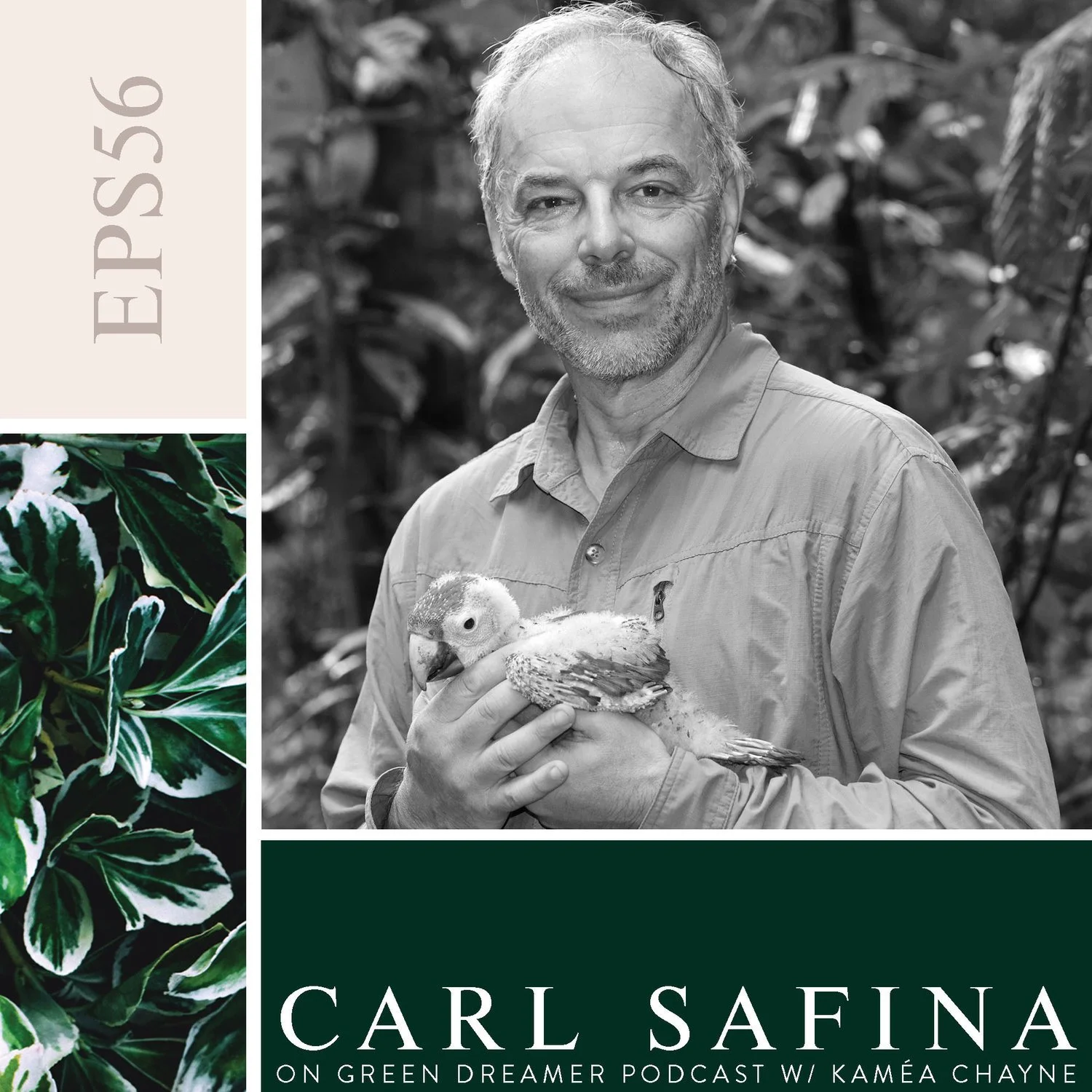A moral obligation to save species from going extinct from human activity
Why is it that we need to instill a sense of moral obligation to not cause some species to go extinct? How can we tell more powerful stories around sustainability to actually move people and inspire action?
Carl Safina, Founder of The Safina Center and a biologist, conservationist, MacArthur Genius Prize winning author, speaker, and contributor to New York Times, TIME, and National Geographic, shares his wisdom with us. Let's dive in.
If you feel inspired by this episode, please consider donating a gift of support of any amount today!
This is a conversation on Green Dreamer Podcast with Kaméa Chayne, a show exploring environmental and intersectional sustainability from ideas to life. Subscribe to Green Dreamer on iTunes, Spotify, Stitcher, or any podcast app and let’s learn what it takes to thrive in every sense of the word!
Highlights
[2:11] What first inspired Carl's passion for nature.
[3:47] Kaméa: "What was one of the most alarming things you learned that made you want to dedicate your career to this?"
[5:14] Carl talks about how he first got started in conservation work.
[7:33] Kaméa: "Throughout all of your years working in environmentalism, what's been one of your most moving experiences?"
[11:29] Kaméa: "What do you think it takes to communicate science effectively in order to actually inspire change and action?"
[12:24] Carl: "I'm trying to get people to really feel what the findings are about what's going on in the world regarding our relationship to nature. And I think the key to that is to try to connect with people where they are and to try and find the overlap between what they're most concerned about and what's going on with other species."
[17:04] Carl: "It will be bad for everybody to live in a world where we killed all these things, and where the human brutality that we're capable of is the thing that shapes the world instead of the human compassion that we're also capable of."
[17:52] How Carl deals with the doom and gloom of working in environmentalism.
[22:52] Carl: "I have an opportunity to let the animals make their own case for their own existence by going and showing how they live, what decisions they make, who their family is, how devoted they are to one another, etc..."
[24:01] Carl on the importance of inspiring emotional connection.
[26:14] Carl: "What we eat, who we vote for, how we run our homes—these things collectively are what give the world the shape it has."
[26:29] Carl on what we need to accelerate towards a thriving planet.
Keep in Touch
Carl Safina
Website: www.carlsafina.org
Twitter: @carlsafina
Facebook: @carl.safina
Instagram: @csafina
The Safina Center
Website: www.safinacenter.org
Twitter: @safinacenter
Tips
To follow: Marc Bekoff
Words of inspiration: "It's time to get up from my desk and go talk a walk, go kayaking or take a walk on the beach with my wife and dogs."
Health tip: "Taking a walk outside in a nice place where you can see some nature."
Green tip: "Think about what you eat and what you do with your garbage."
Element of hope: "Some problems of the past—which seemed tremendous and unsolvable—improved."
Words of Wisdom: "Keep dreaming green! Nobody can do everything, but everyone can do something."

